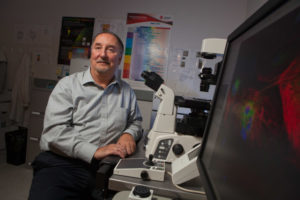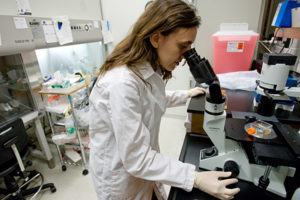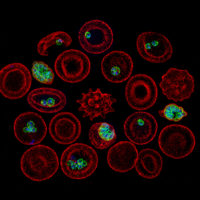Who We Are


The Center for Tropical and Emerging Global Diseases (CTEGD) of the University of Georgia is a university-wide, interdisciplinary center established in 1998 to foster research, education and service related to tropical and emerging global infectious diseases.

Based on a strong foundation of parasitology, immunology, cellular and molecular biology, biochemistry and genetics, CTEGD’s 24 faculty are from nine departments in five colleges/schools.
CTEGD also benefits from the participation of adjunct faculty from The Task Force for Global Health, and its linkages to the Emory Vaccine Center and Centers for Disease Control and Prevention (CDC), all in nearby Atlanta, as well as its relationships with UGA’s Faculty of Infectious Diseases, Complex Carbohydrate Research Center (CCRC), and other related programs at UGA.
The Center is made up of a wide range of research programs that focus largely on protozoan and metazoan parasites, their hosts and their vectors. Many of these programs have major international, on-site components for both research and training, where the faculty and trainees deal with these global infections and the populations that harbor them. CTEGD’s investigators and their laboratories have made major contributions to our understanding of the diseases they study – diseases of poverty that contribute enormously to global death, disability and instability.
Mission: To pursue cutting edge research on tropical and emerging global diseases, train students in this field, and effectively tackle global diseases of poverty.

The Center pursues its mission to foster university-wide involvement in these challenging basic biomedical and public health areas through course offerings, holding a weekly Research in Progress series, and hosting an annual regional symposium each spring semester.
CTEGD also runs two Core facilities that provide services to the research community at UGA as well as the surrounding area. The Flow Cytometry Facility provides flow cytometry analytical and cell sorting facilities used by over 40 independent laboratories. Our Biomedical Microscopy Core is committed to bringing state-of-the-art optical microscope technology to UGA and external researchers and is also used by more than 40 laboratories.
In 2008, The Schistosomiasis Consortium for Operational Research and Evaluation (SCORE) was established through a multi-year grant from Bill & Melinda Gates Foundation. The program ended in 2020.
From 2004 – 2024, CTEGD housed a portion of the National Institutes of Health funded Bioinformatics Resource Center (BRC) for Eukaryotic Pathogens. This resource is routinely accessed by >13,000 researchers globally to study genomic and other high-throughput data related to significant human and veterinary pathogens.
CTEGD has also been instrumental in bringing training grants to UGA to fund predoctoral and postdoctoral training opportunities both for those at UGA as well as bringing international trainees to UGA for brief periods of time.
Diseases Studied

- Toxoplasmosis ** #
- Cyclosporiasis * #
- Malaria *
- Chagas disease *
- Soil-transmitted helminthes *
- Leishmaniasis *
- African trypanosomiasis
- Lymphatic filariasis
- Schistosomiasis
- Brain-eating amoebae *
- Cryptosporidium ** #
- Vector biology (culicine, anopheline and ixodid vectors & parasitoid wasps) **
**frequently or *occasionally transmitted or important within the USA; #Biodefense Priority Pathogens
Goals & Future Initiatives
- Remain a preeminent center for research and education in parasitic and other global infectious diseases
- Turn research into medical and public health interventions
- Promote global research and education at UGA and in Georgia
- Obtain a funding base upon which to create the future of our field
- Recruitment of additional faculty
- Development of additional international research and education programs
- Identification of additional program funding and building an endowment for CTEGD
Learn more about how your tax-deductible financial gift can help us reach our goals.
